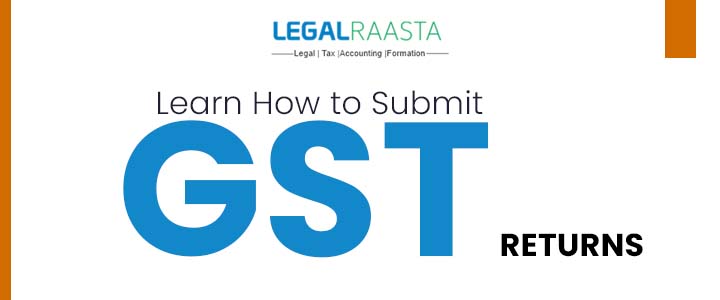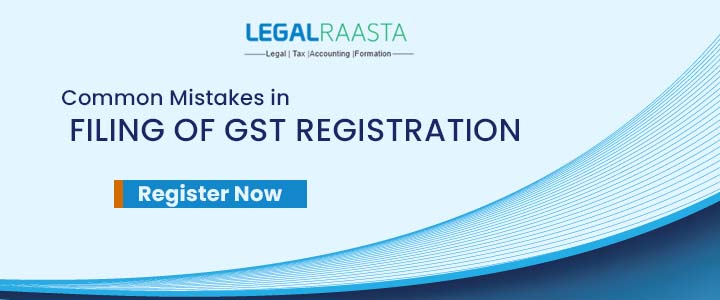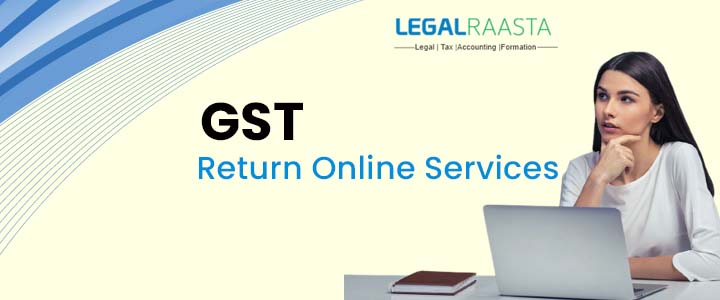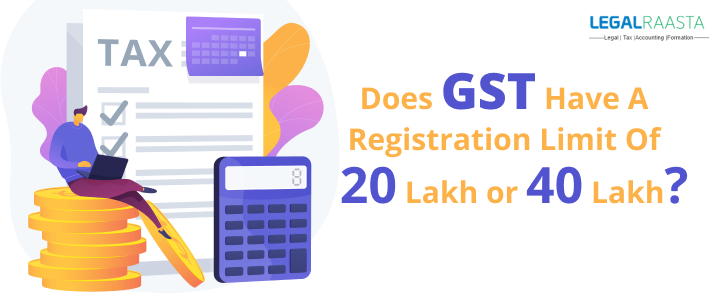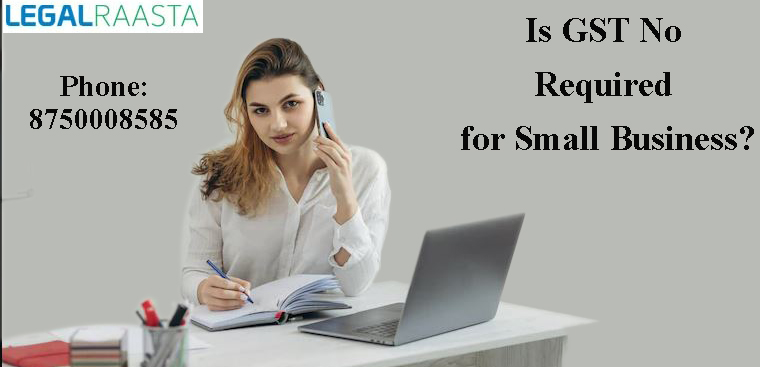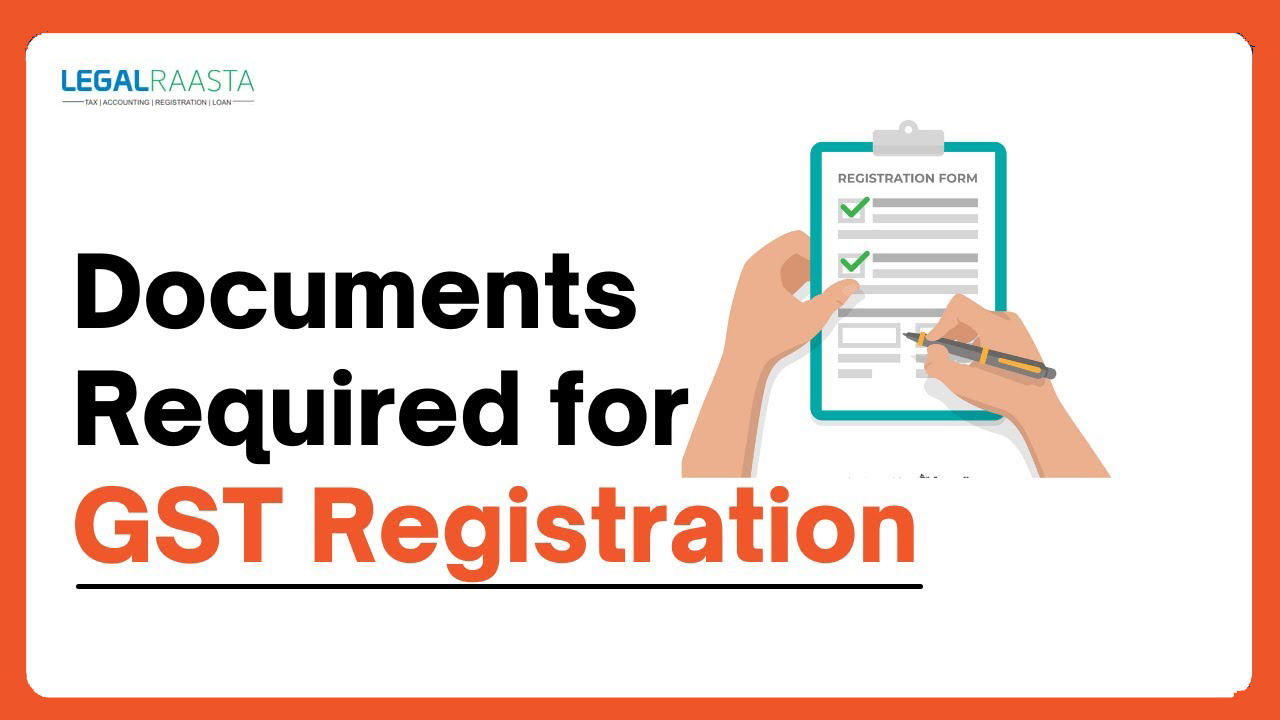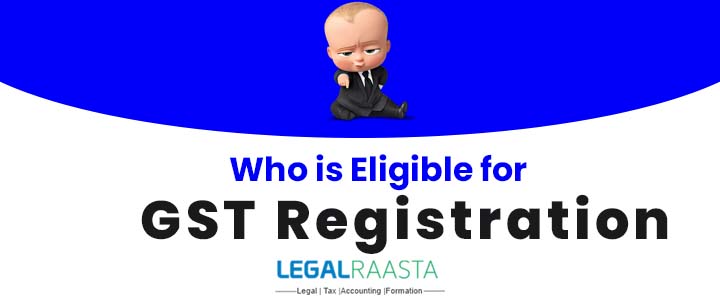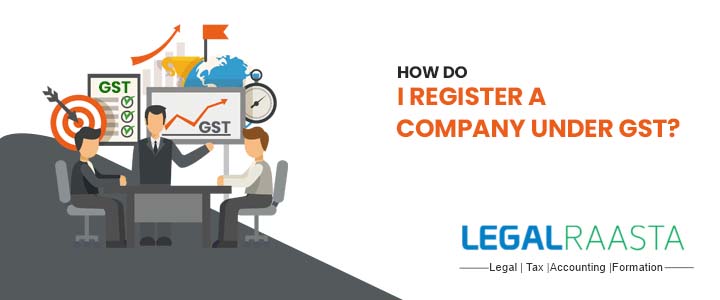Is GST Registration Mandatory for company?
GST (Goods and Services Tax) is applied when a business’s overall revenue exceeds a predetermined limit. Aggregate turnover is the total sales value of all taxable and exempt goods and services, as specified in Section 22 of the CGST Act.
If your entire annual revenue is greater than Rs. 40 lakh for sales of commodities, Rs. 20 lakh for special category states, Rs. 20 lakh for sales of services, and Rs. 10 lakhs for special category states, you must register for an online GST filing. The GST has significantly altered the country’s taxation system since it was implemented into the Indian economy.
Although the Goods and Services Tax (GST) is supposed to simplify the taxation process and make doing business easier in the long run, it is crucial for businesses and stakeholders to comprehend GST and the role of the GSTIN, or the Goods and Services Tax Identification Number, which will have an immediate impact on how their business operates.
Every firm that registers itself under the GST is given a 15-digit unique code called the Tax Identification Number, or GSTIN. The Government of India has made applying for a GSTIN through online GST Filing free of charge.
In this blog post, we addressed the question of whether GST registration is necessary in India. If you still need help figuring out how to register for GST online, contact the legalraasata team.
Following is a list of the taxes that the online GST register has taken the place of:
- Sales tax or value-added tax
- Entertainment tax under octoi
- Taxes on gaming, betting, and lotteries
- buying tax
- Service tax Luxury tax
- Added excise taxes
- such as central excise duty
Slabs of GST Tax
There are five different GST rates for different goods and services in India: 0% GST, 5% GST, 12% GST, 18% GST, and 28% GST. The GST Council regularly assesses the items included in each slab rate to make sure they continue to be pertinent to market developments and industry requests.
Under the current system, taxes are levied at lower rates on basic goods and higher rates on luxury goods and services. Farmers, businesses primarily involved in selling and distributing agricultural products, businesses supplying goods or services that are completely or partially exempt from tax, and businesses engaged only in those activities are exempt from the requirement to complete an online GST registration.
Mandatory GST registration:
- Companies that supply goods and services between states.
- Casual taxpayers and non-resident taxpayers.
- The reverse charge method affects taxpayers.
- Businesses that were registered for previous tax systems like VAT, excise tax, and service tax.
- Any company involved in the supply of goods whose annual revenue surpasses the new threshold of either 20 lakhs for special category states and 40 lakhs for states in the normal category that have chosen the new threshold, such as the state of Telangana.
- Any company involved in the provision of services whose annual revenue exceeds 20 lakhs in states falling under the normal category or 10 lakhs in states falling under the special category.
- Supplier’s representatives and distributors of input services.
- Businesses that provide individuals or businesses in India with online information, database access, and/or retrieval services from outside India.
- Businesses that offer through e-commerce aggregators and e-commerce aggregators for online GST registration.
- Other people and companies that have been informed by the federal or state governments following a recommendation by the GST Council.
Application requirements for online GST filing
- All businesses engaged in the supply of commodities that have annual revenues greater than 40 lakh in a fiscal year must register as regular taxable entities. For the Indian states of Jammu and Kashmir, Himachal Pradesh, Uttarakhand, and the North Eastern region, this barrier is set at 20 lakh.
- All service providers must register for the GST as a regular taxable business if their annual turnover reaches 20 lakh in a financial year.
- For the special category states of Jammu & Kashmir, Himachal Pradesh, Uttarakhand, and the North Eastern States, the annual turnover ceiling is 40 lakh.
- Businesses that are required to register for GST, regardless of annual turnover, irregular taxpayers, input service distributors (ISD), agents, internet sellers, and out-of-state suppliers of goods and services to non-resident taxpayers.
- The reverse-charge scheme requires the person to pay tax. Provider of Online Data Access and Retrieval for TDS/TCS Deductor Registration is required in every state where a business operates, which is significant if that business works out of numerous states.
Documents Required For GST Registration:
- PAN, Aadhaar, a photograph, an electricity bill, a rent agreement if it is rented, and a bank statement or cancelled check—all after registration—for the proprietor.
- PAN of the Entity PAN, Aadhaar, Photos of the Partners, Authorized Signatory Letter, Electricity Bill, Rent Agreement if it is rented, and Bank Statement/Canceled Cheque but only after registration are required for Partnership Firms.
- PAN of the Entity, Certificate of Incorporation PAN, Aadhaar and Photograph of the Directors/Partners, Authorized Signatory Letter, Electricity Bill, Rent Agreement, Digital Signature Certificate, Bank Statement, and Canceled Cheque after Registration are required for Private Limited Companies/LLP.
Aadhaar authentication for GST Registration Process
- According to the modification, anyone who files a GST return online must complete the Aadhaar authentication process, which is meant to take place on the day the application is submitted.
- If someone opts not to use Aadhaar authentication, it is regarded necessary to physically inspect the location of the relevant business.
- The registration number cannot be issued before the physical verification or authentication. Within 21 days of the submission of an application filed without first undergoing Aadhaar authentication or after an unsuccessful authentication, a notice in the form GST REG-03 is given. In cases where Aadhaar authentication has not been selected or has failed, the officer must respond to the application within 21 days of the day it was submitted. The registration shall be regarded as accepted if the officer does not issue the SCN within those 21 days.
Conclusion
If a taxpayer registers his or her business for GST, then online GST filing is required. Huge fines can be imposed for noncompliance. Candidates must follow a specific process in order to register for GST. Users must also take meticulous care to follow the instructions in order to prevent future delays in the processing of the application.
As a result, we have clarified whether GST registration is required in India. High-quality GST registration services are offered by Legalraasta, making it simple for taxpayers to complete their enrollment and Call our GST experts right away for a free consultation and to register for GST online!


